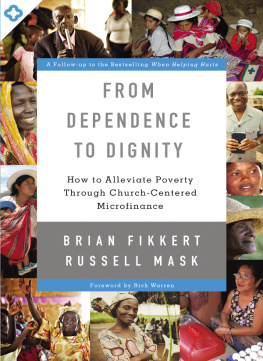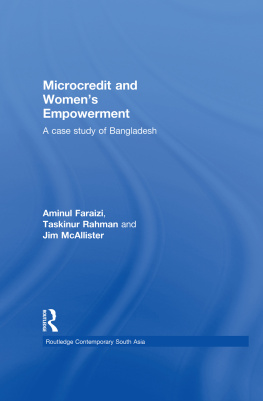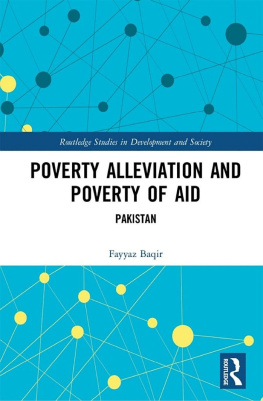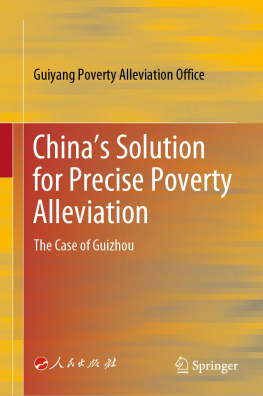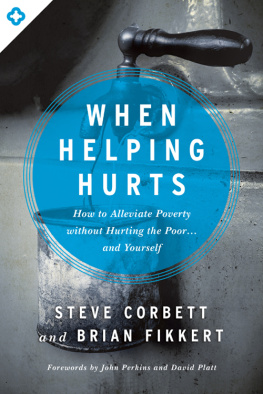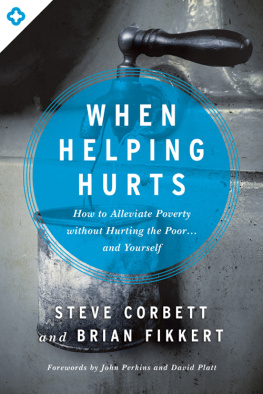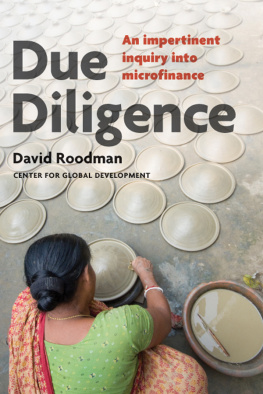
A Microcredit Alternative in South Asia
Microcredit took the development world by storm as a tool for poverty alleviation in the 1980s. After being hailed as a panacea, a few decades on it started being forcefully criticized based on its practice.
This book explores Akhuwat (literally brotherhood), a rapidly growing Pakistani NGO formed in 2001, which addresses the shortcomings of conventional microfinance. Its vision is of a society built on empathy and social solidarity, and its mission is that of creating self-sufficiency among the entrepreneurial poor. This book examines whether Akhuwat fulfils its promises of not pushing loans or encouraging clients to get on a debt treadmill and helping them to avoid high debt burdens by charging no interest and easing repayment terms. Conventional microcredit organizations are criticized for losing sight of the original mission of poverty alleviation by engaging in empire building, and Akhuwats goal is to avoid this by embracing an alternative strategy of scaling up. Finally, this book also analyses Akhuwats approach as being gender sensitive and embracing all religions, castes and ethnicities.
Based on fieldwork designed to assess if Akhuwat is the microcredit alternative it claims to be, this book will be of interest to scholars of poverty and development studies in general and microcredit in particular.
Shahrukh Rafi Khan is currently a Mount Holyoke College Research Associate. He has published extensively in refereed journals and authored and edited several books. His recent books include a History of Development Economics Thought (Routledge, 2014) and Market as Means Not Master: Towards New Developmentalism (Routledge, 2010).
Natasha Ansari is a Research Associate at the Collective for Social Science Research. She is one of the lead researchers on the Value Chains pillar for the research consortium Leveraging Agriculture for Nutrition in South Asia (LANSA) in Pakistan.
Routledge Studies in the Growth Economies of Asia
Chinas Economic Culture
The ritual order of state and markets
Carsten Herrmann-Pillath
Labour in the Clothing Industry in the Asia Pacific
Edited by Vicki Crinis and Adrian Vickers
The Chinese and Indian Corporate Economies
A comparative history of their search for economic renaissance and globalization
Rajeswary Ampalavanar Brown
The Diffusion of Western Economic Ideas in East Asia
Edited by Malcolm Warner
Employers Associations in Asia
Employer collective action
Edited by John Benson, Ying Zhu and Howard Gospel
Business Leaders and Leadership in Asia
Ying Zhu, Shuang Ren, Ngan Collins and Malcolm Warner
Innovation, Investment and Intellectual Property in South Korea
Park to park
Ruth Taplin
A Microcredit Alternative in South Asia
Akhuwats experiment
Shahrukh Rafi Khan and Natasha Ansari
For a full list of titles in this series, please visit www.routledge.com
A Microcredit Alternative in South Asia
Akhuwats Experiment
Shahrukh Rafi Khan and Natasha Ansari
First published 2018
by Routledge
2 Park Square, Milton Park, Abingdon, Oxon OX14 4RN
and by Routledge
711 Third Avenue, New York, NY 10017
Routledge is an imprint of the Taylor & Francis Group, an informa business
2018 Shahrukh Rafi Khan and Natasha Ansari
The right of Shahrukh Rafi Khan and Natasha Ansari to be identified as authors of this work has been asserted by them in accordance with sections 77 and 78 of the Copyright, Designs and Patents Act 1988.
All rights reserved. No part of this book may be reprinted or reproduced or utilized in any form or by any electronic, mechanical, or other means, now known or hereafter invented, including photocopying and recording, or in any information storage or retrieval system, without permission in writing from the publishers.
Trademark notice: Product or corporate names may be trademarks or registered trademarks, and are used only for identification and explanation without intent to infringe.
British Library Cataloguing-in-Publication Data
A catalogue record for this book is available from the British Library
Library of Congress Cataloging-in-Publication Data
A catalog record for this book has been requested
ISBN: 978-0-8153-8685-8 (hbk)
ISBN: 978-1-351-17458-9 (ebk)
Typeset in Times New Roman
by Apex CoVantage, LLC
To the hundreds of brave and hard-working poor entrepreneurs we interviewed and the dedicated field staff we found serving them
Contents
SECTION 1
Conceptual and institutional issues
SECTION 2
Empirical assessment
SECTION 3
Summary and conclusions
In 1976 I chose the University of Michigan for graduate study because it still had a heterodox presence on the faculty, even though it was small and shrinking. Tom Weisskopf was the main draw for me, and I had hoped to work with him. A personal crisis during my studies there drew me back to my religious roots to seek stability. What appealed to me most about Islam, as I understood it, was the focus on personal freedom in religious practice and social justice for society.
Some aspects of Islam, in principle (according to many of its believers), support personal freedom and social justice, but the practice in many countries historically and currently is not consistent with these teachings. I was fortunate therefore that Tom Weisskopf agreed to chair my dissertation committee on Islamic Finance and Banking, and I could not have wished for a better, more open-minded, and rigorous scholar to learn from.2
I finished my dissertation in 1982 and returned to work in Pakistan. I was obligated by a bond to do this in exchange for the support I had received from the Ford Foundation and USAID mediated by the government of Pakistan.3 I had intended to continue to work on Islamic economics notwithstanding the bemusement, tolerance or hostility of various friends. However, the timing was not right.
Pakistan was being run by a military dictator (General Zia-ul-Haq, 19791988), who may have been devout in his own way, but who also used Islamic symbols and policy for his regimes political legitimacy. Islamic scholarship was at this time associated with the patronage of this military dictator, and careerism in the field was rife and unpalatable. The last straw for me was when a paper I had written for a conference could not be accepted without being vetted by the Council of Islamic Ideology. So I turned to other topics instead.
It was about three decades later that a thoughtful student and my co-author, Natasha Ansari, also from Pakistan, asked me to supervise her senior thesis at Mount Holyoke College. This book has emerged from her time at Akhuwat, Lahore, in the summer of 2012. Using altruism to conceptually frame Akhuwats Islamic microcredit alternative and drawing on her fieldwork, she wrote a highly successful senior thesis. Notwithstanding her concerns about how successfully the organization would in fact scale up, she persuaded me that further research based on systematic fieldwork was warranted.


